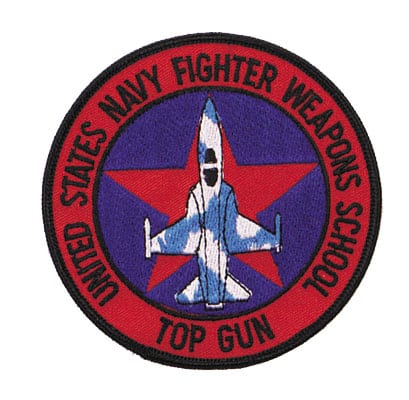Listen to the podcast above, watch the video, or just read the highlights below.
In the world of high-stakes fighter jets, where errors can be fatal, the Navy’s prestigious Top Gun flight school employs an intensive training method that focuses on mastering specific skills. Sales leaders seeking to elevate their teams’ performance can draw invaluable insights from this approach. Keep reading to uncover how targeted repetition and constructive feedback can provide your team with a competitive edge.
The Need for Deliberate Practice in Sales Training
Sales training often falls short of delivering tangible results. Companies invest substantial resources in elaborate seminars and workshops, only to discover that without proper reinforcement, sales representatives struggle to retain newly acquired skills and knowledge. Within a short time, a significant portion of the training investment is forgotten, resulting in millions of wasted dollars each year.
The core issue here is unfocused education without meaningful reinforcement. Salespeople need more than theoretical knowledge; they require hands-on skills that are honed through rigorous practice.
The Top Gun Methodology
 When Navy pilots faced a critical challenge in Vietnam, losing dogfights at an alarming rate, the Top Gun school was established to reverse this trend. These pilots were already exceptionally skilled, having been handpicked from elite squadrons. However, they needed to enhance specific combat abilities, particularly in facing Russian MiGs.
When Navy pilots faced a critical challenge in Vietnam, losing dogfights at an alarming rate, the Top Gun school was established to reverse this trend. These pilots were already exceptionally skilled, having been handpicked from elite squadrons. However, they needed to enhance specific combat abilities, particularly in facing Russian MiGs.
Through the concept of “deliberate practice,” Top Gun transformed these weaknesses into strengths. The key principles include:
- Chunked Training: Breaking down training into distinct skill “chunks,” such as radar proficiency and aerial maneuvering.
- Focused Repetition: Engaging in intense repetition focused on problem areas rather than strengths, pushing pilots out of their comfort zones.
- Immediate Feedback: Receiving continuous feedback from instructors who analyzed mistakes in real-time and corrected errors immediately.
- Progress Metrics: Implementing metrics to monitor progress over time, which resulted in Top Gun elevating the Navy’s kill ratio from 2:1 to a dominant 12:1 after adopting this rigorous methodology.
The outcomes of this approach are undeniable, and the same principles can revolutionize sales training, turning it from a routine exercise into a source of competitive advantage.
Applying Deliberate Practice to Sales Training
To implement Top Gun-style training, sales leaders should follow these steps:
Skill Gap Identification Identify skill gaps by conducting assessments, surveys, or analyzing metrics to pinpoint areas of recurring weakness.
Skill Component Breakdown Break down problem skills into smaller, manageable components. For example, addressing objection handling might begin with improving active listening skills.
Specific Goals Set specific, measurable goals, such as enhancing close rates from X to Y, and monitor progress over time.
Repetitive Drills Design repetitive drills that focus on these weak points. For instance, daily role-playing of objection scenarios is more effective than broad discussions.
Consistent Feedback Provide consistent feedback from managers and coaches to swiftly rectify mistakes. Recording practice sessions for playback can be beneficial.
Recognize Plateaus Recognize plateaus as a sign to intensify practice, as resistance is a sign of skill development.
With targeted repetition and robust feedback, sales teams can attain mastery.
- Breaking Through Career Barriers: A Saleswoman’s Story - July 3, 2025
- Steve Jobs Presentation Techniques That Still Work Today - June 27, 2025
- How Selling with Purpose Drives Better Business Growth - June 19, 2025
